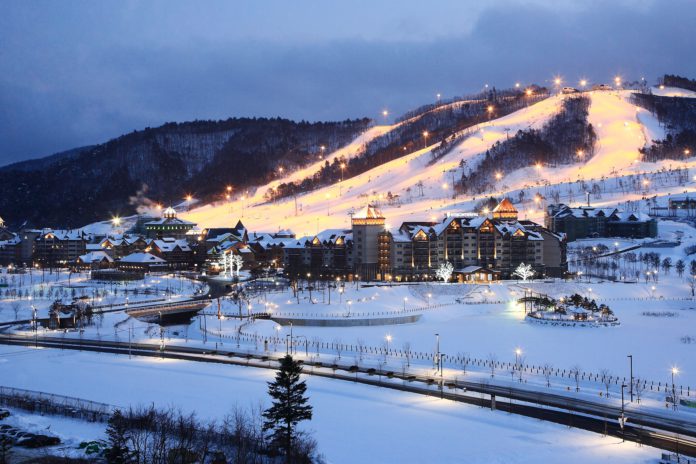

For an attorney at the Olympic games, an Olympics without a scandal means more time to be a spectator than an official.
With the biggest controversy to come out of the Pyeongchang Olympics coming before the opening ceremony, Stephen Hess, a Sherman & Howard partner and chairman of the appeals tribunal for the International Bobsled and Skeleton Federation, participated in that spectator role. Although his involvement was more passive than it had been when he traveled to Sochi, Russia, for the 2014 Winter Olympics, he did have a close view of the games as well as some of the issues that face international sports.
With the games absent any cheating, impropriety or rule issues, his time in South Korea involved a tour of the North Korean DMZ, including a performance by an electric cello player accompanying a Yo-Yo artist — an event with a surreal juxtaposition of attractions, he said.
Doping at the Games
At the start of this year’s games, Russia appealed a decision from the International Olympic Committee to ban its team from competing. Russia was hoping to get 45 athletes cleared to compete just a few hours before the opening ceremony. The Court of Arbitration for Sport upheld the IOC decision and said that it was an eligibility decision and not a sanction against the country. Ultimately, there was no Russian team in this year’s games, but a group of athletes were allowed to compete as Olympic Athletes from Russia.
Further, the IOC held off on deciding whether the athletes could attend the closing ceremony under the Russian flag. That decision depends on the behavior of the athletes from Russia during the games, and as of press time — two days before the closing ceremony — that decision hasn’t been announced. However, a Russian athlete competing in curling tested positive for meldonium, a banned substance. The Court of Arbitration for Sport stripped the athlete and his partner of their bronze medals and awarded the medals instead to the fourth place team.
Hess said that instance could be something that keeps the Russian athletes from being able to participate in the closing ceremony under their country’s colors.
Although the IOC’s handling of the Russian athletes made international news and doping is unlikely to decline as a problem in sports, Hess said it’s unlikely we’ll see similar situations in the future where athletes are competing without a country. He described it as an extraordinary situation similar to the 2016 Rio de Janeiro Olympics’ refugee team.
“That’s the last thing the IOC wants to be put in position to contemplate again,” Hess said. It’s difficult politically as well as logistically. The institutional doping system discovered after the Sochi games created an unusual instance where an entire team was blocked from competing.
Gatekeepers of Integrity
While it’s unlikely we’ll see many more of the grey uniforms sporting the Olympic flag rather than a country’s, Hess does expect the IOC itself to flex its muscles more frequently in the same vein as a regulating body.
He said integrity is a continuing concern in the world of international sports, and there are issues outside of doping that are causing international federations and large organizations, such as the IOC, to get involved more frequently. And with the IOC serving as the gatekeeper to the biggest treasure chest in sports,” it is taking a more active role in the legal and regulatory aspects of interacting with international sports federations.
For example, the 2022 FIFA World Cup will be held in Qatar. Hess didn’t make any claims of wrongdoing, but did question why an organization with ongoing bidrigging investigations would be hosting the international soccer competition in a country where the average temperatures in the summer top 100 degrees.
The IOC is taking a direct approach in dealing with integrity issues, such as with a scandal involving the International Boxing Association, the organization that sanctions boxing matches and awards around the world. The IOC stopped making payments to the AIBA and threatened to remove the association or boxing as a sport from the 2020 Olympics after the AIBA’s president was found to be mismanaging money while the organization was still dealing with the fallout of a match-fixing scandal at the 2016 Rio de Janerio Olympics. The AIBA installed an interim president who himself is believed to be an Uzbek crime lord. The IOC is giving the organization until April to solve its corruption problems in order to earn back the IOC’s funding.
“IOC is being more aggressive than in the past in trying to exercise control over international federations,” Hess said. “It withheld money from boxing, threatened to boot weightlifting, threatened to take wrestling out of the Olympics. …. IOC is keenly aware of the problems and is starting to throw its weight around.”
Hess said that is something the IOC hasn’t had to do much of in the past, but as more and more money continues to get poured into sports around the world, the IOC has to continue to get involved in the “rising tide of challenges to how sports are run.”
— Tony Flesor

